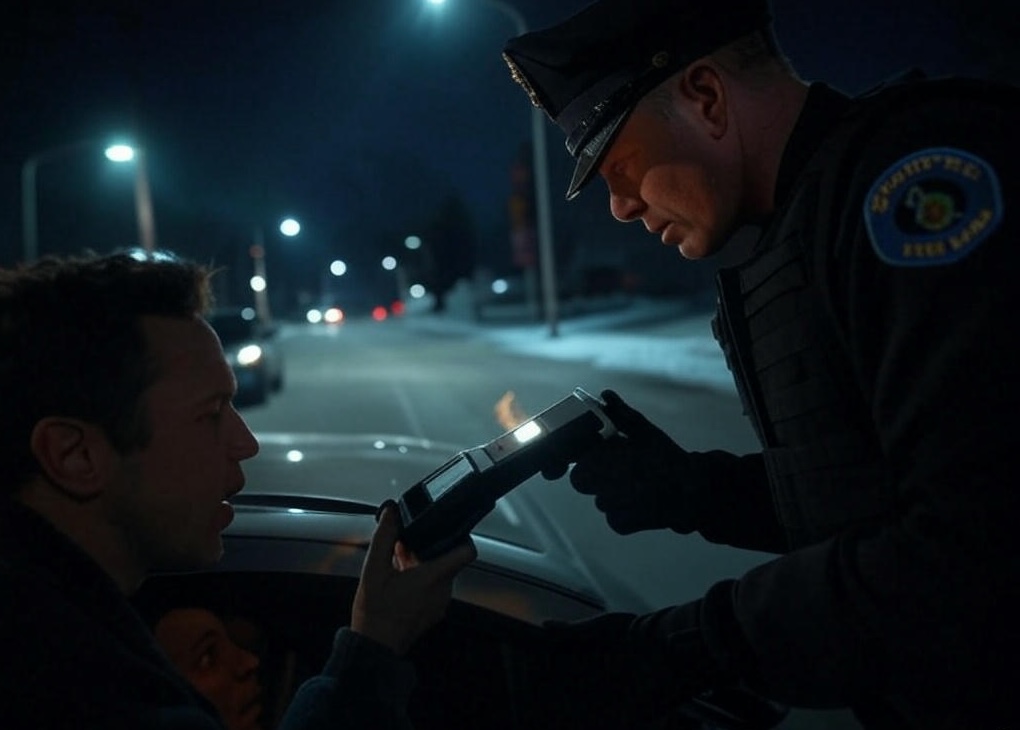Getting pulled over by the police can be a nerve-wracking experience, especially if the officer asks, “Have you been drinking tonight?” You may be thinking: I don’t want to lie, but I also don’t want to say something that could get me in trouble.
So, what’s the right move? As experienced Minnesota DWI attorneys at Martine Law, we’ve helped countless clients navigate traffic stops and DWI-related situations. In this post, we’ll break down how to handle this question legally and wisely—without incriminating yourself or breaking the law.
Why Do Police Ask If You’ve Been Drinking?
When an officer pulls you over and asks about drinking, they’re looking for evidence. Your answer, combined with observations like the smell of alcohol or slurred speech, could lead to further investigation—think field sobriety tests or a breathalyzer. In Minnesota, like most places, driving under the influence (DWI) is a serious offense with steep penalties, including fines, license suspension, or even jail time. The officer’s question isn’t casual–it’s a step toward determining probable cause.
But here’s the catch: you don’t have to answer in a way that digs your own legal grave. Let’s explore your options.
The Dilemma: To Answer or Not to Answer?
Imagine this scenario:
Officer: “Have you been drinking tonight?”
You: “Uh… I don’t want to lie, officer, but I also don’t want to incriminate myself. What do I say?”
You might feel torn. On one hand, lying to the police is a bad idea—it could lead to additional charges like obstruction of justice. On the other hand, admitting “Yes, I had a beer an hour ago” might give the officer enough to escalate the stop, even if you’re under the legal limit. So, what should you do?
The good news is you have rights, and you can exercise them respectfully and legally.
Your Best Response: Politely Decline to Answer
The Fifth Amendment protects you from self-incrimination, meaning you’re not obligated to answer questions that could implicate you in a crime. Instead of stumbling through an explanation or admitting anything, try this:
You: “Officer, I respectfully decline to answer that question.”
Officer: “Why won’t you answer? Are you hiding something?”
You: “I’m just exercising my rights, sir/ma’am. I’m happy to cooperate with anything I’m legally required to do.”
This approach keeps you truthful (you’re not lying), protects your rights, and avoids giving the officer ammunition for a DWI charge. Pair it with staying calm and polite, and you’re on solid ground.
What You’re Legally Required to Do During a Traffic Stop
While you can refuse to answer incriminating questions, there are a few things you must do when pulled over in Minnesota:
-
- Provide identification: Hand over your driver’s license, registration, and proof of insurance when asked.
-
- Step out of the vehicle: If the officer requests it, you’re legally required to comply.
-
- Submit to a breathalyzer (sometimes): In Minnesota, implied consent laws mean refusing a breathalyzer is not as easy as “yes you can” or “no you can’t.”
What are the legal requirements about taking a breathalyzer in Minnesota?
You’re not required to answer questions like “Where are you coming from?” or “Have you been drinking tonight?” beyond basic identification.
Should You Mention a Lawyer?
If the situation escalates—say, the officer insists on a field sobriety test or accuses you of DWI—you can say:
You: “I’d like to speak with my attorney before answering any more questions or taking any tests.”
This invokes your right to counsel and signals you’re serious about protecting yourself. Don’t argue or resist physically, just stay firm and courteous.
Why This Matters: Minnesota DWI Consequences Are No Joke
A DWI conviction in Minnesota can mean thousands of dollars in fines, mandatory classes, or even jail time—not to mention a criminal record that haunts your job prospects. Even if you’ve had just one drink and feel fine, your words could tip the scales toward an arrest. That’s why knowing how to respond—or not respond—to “Have you been drinking tonight?” is critical.
Final Tips: Stay Calm and Know Your Rights
Traffic stops are stressful, but preparation helps. Here’s a quick checklist:
-
- Keep your hands visible (e.g., on the steering wheel).
-
- Don’t admit to drinking, even “just one.”
-
- Politely decline to answer incriminating questions.
-
- Call a Minnesota DWI lawyer ASAP if you’re arrested or charged.
At Martine Law, we’ve seen how a single traffic stop can spiral into a life-changing ordeal. If you’re facing DWI charges or just want to understand your rights better, contact our team today for a free consultation. We’re here to help you navigate the legal road ahead.
Disclaimer: This content is for informational and educational purposes only and does not constitute legal advice. For legal guidance specific to your situation, please contact Martine Law.

